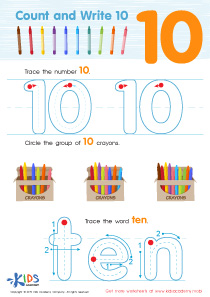Normal Numbers 11–20 Worksheets for Ages 5-7
4 filtered results
-
From - To
Our "Normal Numbers 11–20 Worksheets" are specifically designed for children aged 5-7 to grasp the fundamental concepts of numbers ranging from 11 to 20. These engaging and educational worksheets will help young learners develop their number recognition, counting, sequencing, and writing skills in a fun and interactive way. Each worksheet is meticulously crafted to provide the right balance of challenge and enjoyment, ensuring that your child stays motivated and confident throughout the learning process. Perfect for classroom use or at-home practice, these worksheets are an ideal resource for mastering basic math skills early on.
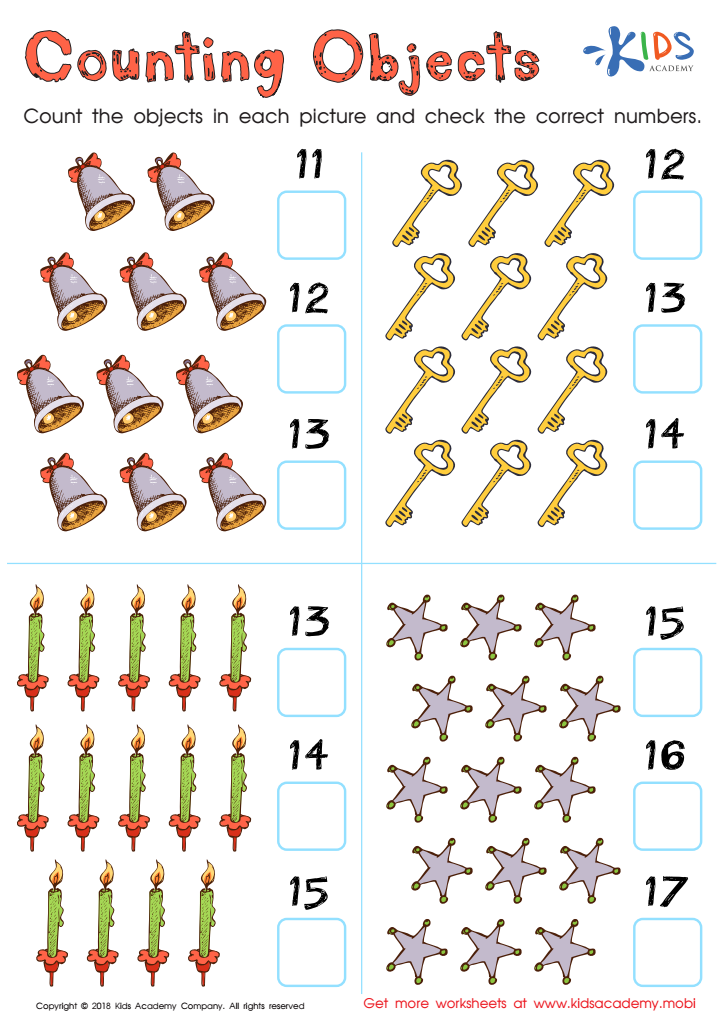

Counting Numbers Worksheet For Kindergarten
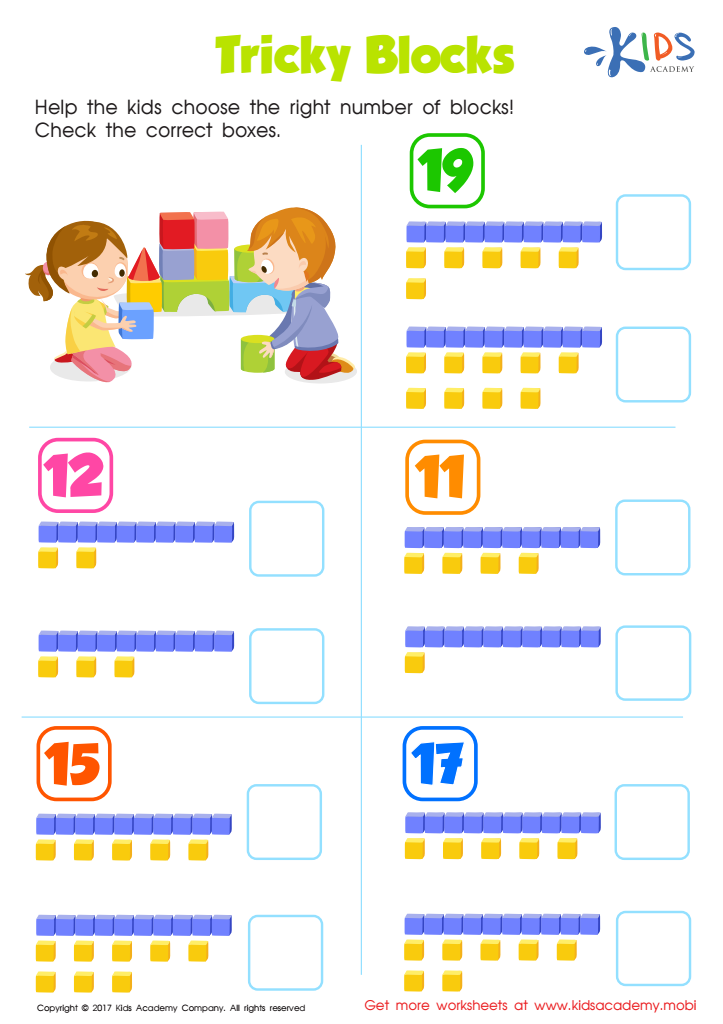

Tricky Blocks Worksheet
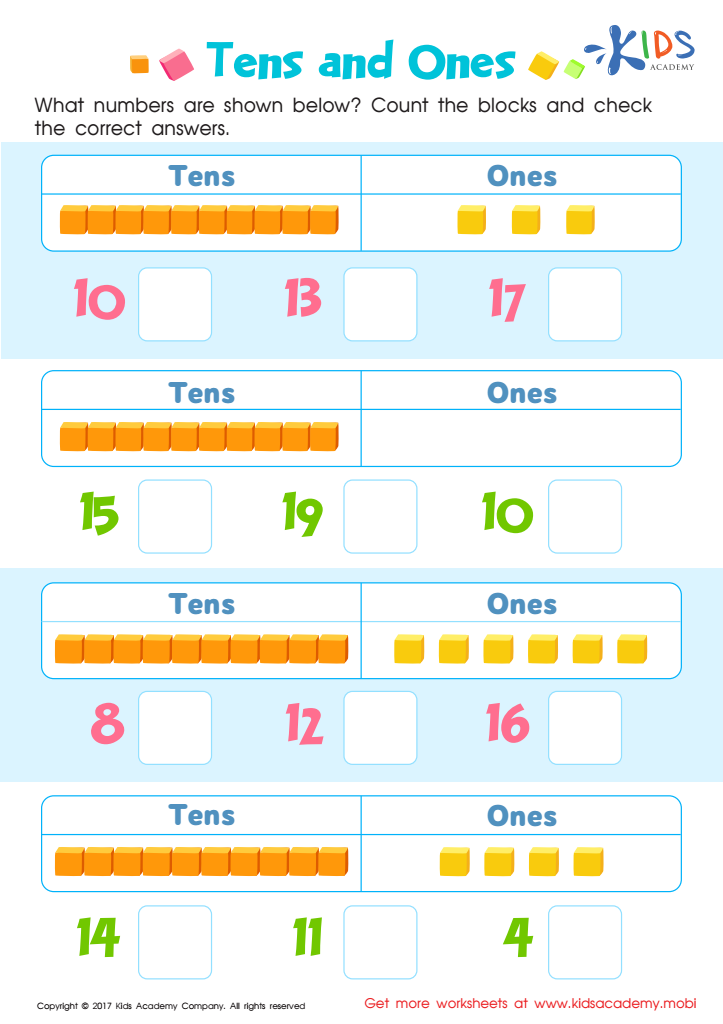

Tens and Ones Worksheet
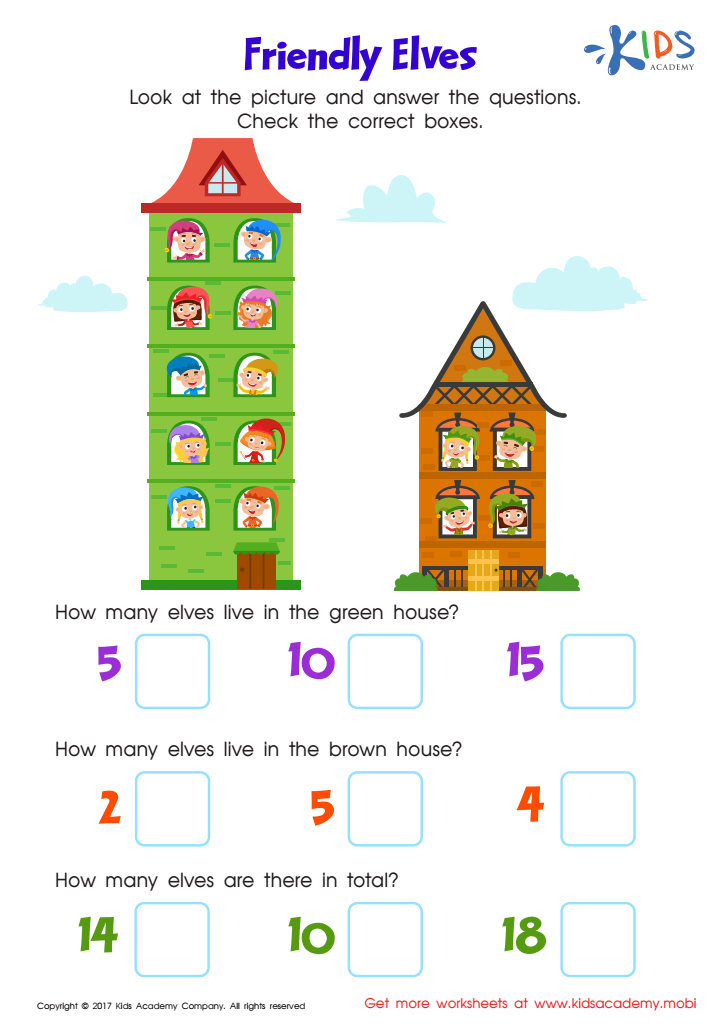

Place Value: Friendly Elves Worksheet
Understanding the normal numbers, specifically 11 to 20, is foundational for children aged 5-7 as it sets the stage for future mathematical learning. This age group is developing cognitive skills crucial for categorizing, sequencing, and basic arithmetic. Numbers 11 through 20 can be particularly tricky because they include both teen numbers, which often do not follow the same pattern of naming as numbers 1-10, and pave the way for understanding larger numbers.
Firstly, mastering these numbers ensures that children develop a sense of numerical order and magnitude, which are essential for more complex computations. They learn to recognize unit and teen place value distinctions, a critical concept in decimal and advanced math.
Secondly, the ability to swiftly identify and work with these numbers boosts confidence and engagement in mathematics. Early competency in numbers 11-20 affects self-efficacy and fosters a positive attitude towards learning math, which is crucial for long-term academic success.
Lastly, teaching these numbers at an early age engages children in hands-on and visual learning experiences that deepen comprehension. Activities like counting objects, using number lines, and playing number games make abstract concepts concrete, thus solidifying their understanding and preparing them for more intricate math tasks ahead. Hence, both parents and teachers should focus on ensuring young children are comfortable and proficient with numbers 11-20.
 Assign to My Students
Assign to My Students










